Prøve GULL - Gratis
The End Of Trust
The Atlantic
|December 2021
Suspicion is undermining the American economy.

Manufacturer inventories. Durable goods orders. Nonfarm payrolls. Inflation-adjusted GDP. These are the dreary reportables that tell us how our economy is doing. And many of them look a whole lot better now than they did at their early-pandemic depths. But what if there’s another factor we’re missing? What if the data points are obscuring a deepening recession in a commodity that underpins them all?
Trust. Without it, Adam Smith’s invisible hand stays in its pocket; Keynes’s “animal spirits” are muted. “Virtually every commercial transaction has within itself an element of trust,” the Nobel Prize– winning economist Kenneth Arrow wrote in 1972.
But trust is less quantifiable than other forms of capital. Its decline is vaguely felt before it’s plainly seen. As companies have gone virtual during the coronavirus pandemic, supervisors wonder whether their remote workers are in fact working. New colleagues arrive and leave without ever having met. Direct reports ask if they could have that casual understanding put down in writing. No one knows whether the boss’s cryptic closing remark was ironic or hostile.
Denne historien er fra December 2021-utgaven av The Atlantic.
Abonner på Magzter GOLD for å få tilgang til tusenvis av kuraterte premiumhistorier og over 9000 magasiner og aviser.
Allerede abonnent? Logg på
FLERE HISTORIER FRA The Atlantic

The Atlantic
The Light of a Man-Made Star
In 2003, the photographer Michael Light published 100 Suns, a collection of government photographs of nuclear-weapons tests conducted from 1945 to 1962.
1 min
August 2025

The Atlantic
It Has Pockets!
How Claire McCardell changed women's fashion
10 mins
August 2025

The Atlantic
Lamentations-A short story
It was March when I received the news that Harold had died in one of his caves.
23 mins
August 2025

The Atlantic
MY PERSONAL WAR ON PLASTIC
What happened when I tried to eliminate it from my family's life
10 mins
August 2025
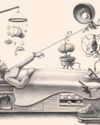
The Atlantic
American Insomnia
Tossing and turning through our national sleep crisis
36 mins
August 2025
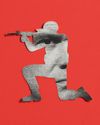
The Atlantic
THE WARRIOR MYTH
THE WARRIOR MYTH What Pete Hegseth doesn't understand about soldiers
8 mins
August 2025
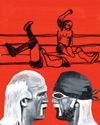
The Atlantic
The High Art of Pro Wrestling
Yes, it's fiction. So is Moby Dick.
9 mins
August 2025
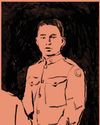
The Atlantic
The Expatriate
Joseph Kurihara had faith in America. It didn't have faith in him.
15 mins
August 2025

The Atlantic
How Toni Morrison Changed Publishing
At night, she worked on her novels. By day, as an editor at Random House, she championed a new generation of writers.
10 mins
August 2025
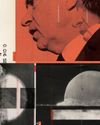
The Atlantic
The President's Weapon
Why does the power to launch nuclear weapons rest with a single American?
14 mins
August 2025
